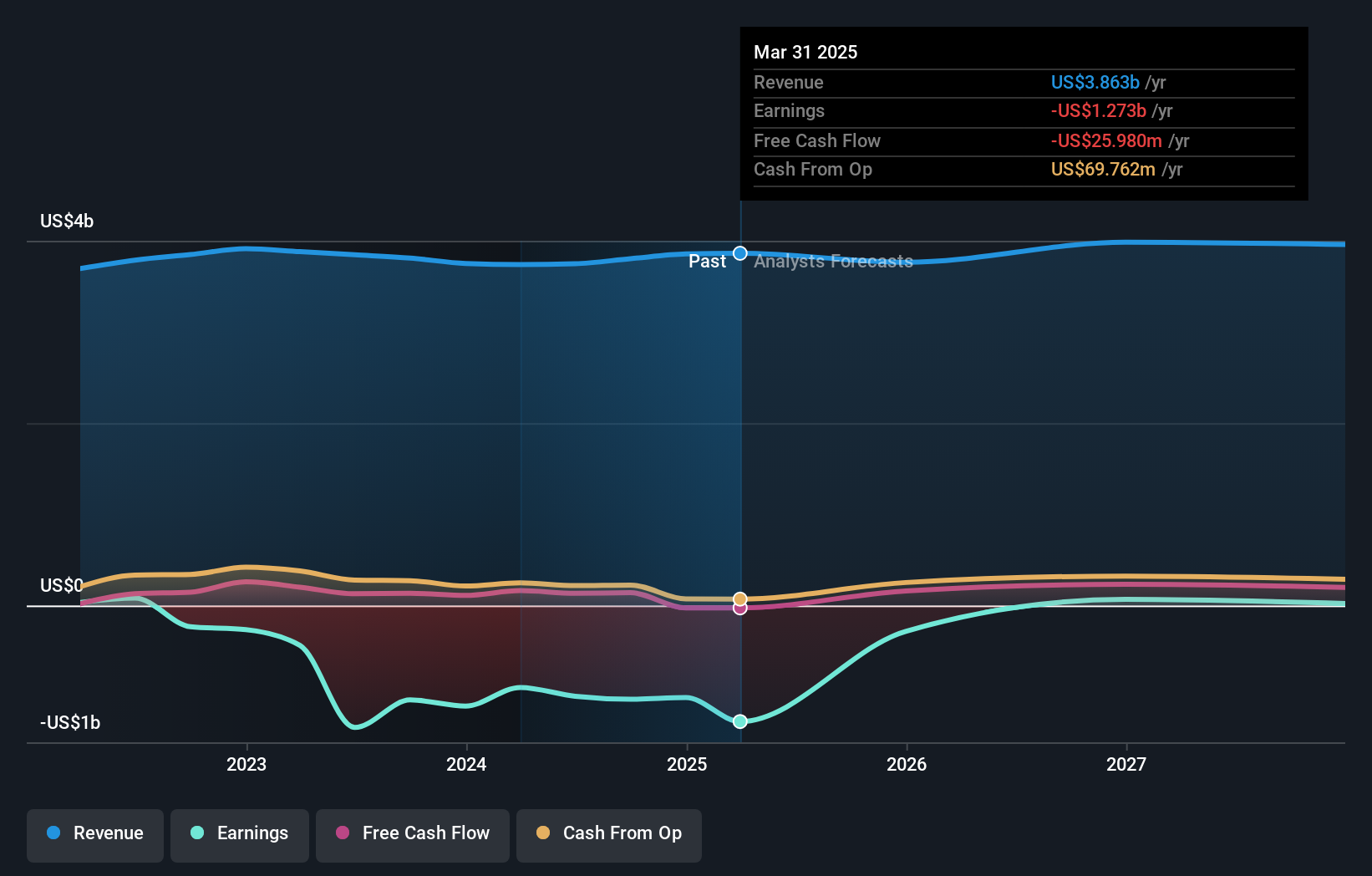Institutional investors control 75% of iHeartMedia, Inc. (NASDAQ:IHRT) and were rewarded last week after stock increased 23%
Key Insights
- Given the large stake in the stock by institutions, iHeartMedia's stock price might be vulnerable to their trading decisions
- The top 9 shareholders own 50% of the company
- Insiders have been buying lately
Every investor in iHeartMedia, Inc. (NASDAQ:IHRT) should be aware of the most powerful shareholder groups. We can see that institutions own the lion's share in the company with 75% ownership. Put another way, the group faces the maximum upside potential (or downside risk).
Last week’s 23% gain means that institutional investors were on the positive end of the spectrum even as the company has shown strong longer-term trends. The gains from last week would have further boosted the one-year return to shareholders which currently stand at 38%.
Let's delve deeper into each type of owner of iHeartMedia, beginning with the chart below.
See our latest analysis for iHeartMedia

What Does The Institutional Ownership Tell Us About iHeartMedia?
Many institutions measure their performance against an index that approximates the local market. So they usually pay more attention to companies that are included in major indices.
iHeartMedia already has institutions on the share registry. Indeed, they own a respectable stake in the company. This suggests some credibility amongst professional investors. But we can't rely on that fact alone since institutions make bad investments sometimes, just like everyone does. It is not uncommon to see a big share price drop if two large institutional investors try to sell out of a stock at the same time. So it is worth checking the past earnings trajectory of iHeartMedia, (below). Of course, keep in mind that there are other factors to consider, too.

Institutional investors own over 50% of the company, so together than can probably strongly influence board decisions. Hedge funds don't have many shares in iHeartMedia. The company's largest shareholder is Pacific Investment Management Company LLC, with ownership of 16%. Global Media & Entertainment Investments Limited is the second largest shareholder owning 12% of common stock, and BlackRock, Inc. holds about 4.9% of the company stock. In addition, we found that Robert Pittman, the CEO has 2.1% of the shares allocated to their name.
We also observed that the top 9 shareholders account for more than half of the share register, with a few smaller shareholders to balance the interests of the larger ones to a certain extent.
Researching institutional ownership is a good way to gauge and filter a stock's expected performance. The same can be achieved by studying analyst sentiments. Quite a few analysts cover the stock, so you could look into forecast growth quite easily.
Insider Ownership Of iHeartMedia
The definition of an insider can differ slightly between different countries, but members of the board of directors always count. Management ultimately answers to the board. However, it is not uncommon for managers to be executive board members, especially if they are a founder or the CEO.
I generally consider insider ownership to be a good thing. However, on some occasions it makes it more difficult for other shareholders to hold the board accountable for decisions.
We can see that insiders own shares in iHeartMedia, Inc.. As individuals, the insiders collectively own US$14m worth of the US$252m company. Some would say this shows alignment of interests between shareholders and the board. But it might be worth checking if those insiders have been selling.
General Public Ownership
With a 20% ownership, the general public, mostly comprising of individual investors, have some degree of sway over iHeartMedia. While this size of ownership may not be enough to sway a policy decision in their favour, they can still make a collective impact on company policies.
Next Steps:
I find it very interesting to look at who exactly owns a company. But to truly gain insight, we need to consider other information, too. Case in point: We've spotted 2 warning signs for iHeartMedia you should be aware of.
If you would prefer discover what analysts are predicting in terms of future growth, do not miss this free report on analyst forecasts.
NB: Figures in this article are calculated using data from the last twelve months, which refer to the 12-month period ending on the last date of the month the financial statement is dated. This may not be consistent with full year annual report figures.
Have feedback on this article? Concerned about the content? Get in touch with us directly. Alternatively, email editorial-team (at) simplywallst.com.
This article by Simply Wall St is general in nature. We provide commentary based on historical data and analyst forecasts only using an unbiased methodology and our articles are not intended to be financial advice. It does not constitute a recommendation to buy or sell any stock, and does not take account of your objectives, or your financial situation. We aim to bring you long-term focused analysis driven by fundamental data. Note that our analysis may not factor in the latest price-sensitive company announcements or qualitative material. Simply Wall St has no position in any stocks mentioned.
 Wall Street Journal
Wall Street Journal